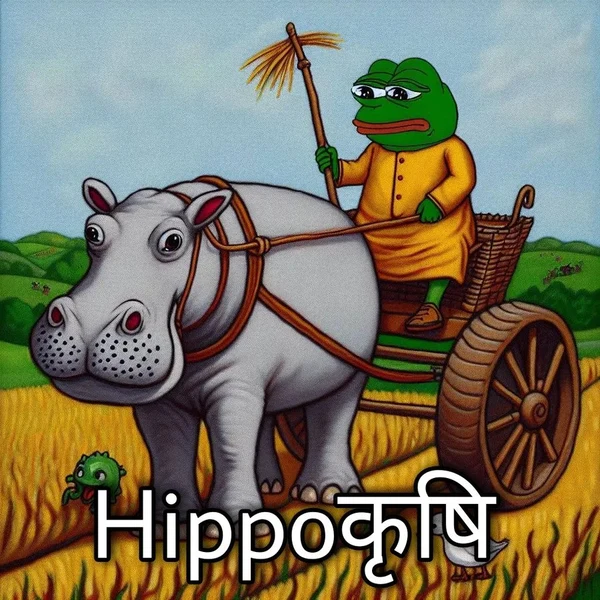- 3
- 15
It's happening. Avatar Vishnu. Trials in stadiums. pic.twitter.com/oUbf6Yo0yN
— Beachstud90210 (@KhalkeionGenos) November 20, 2022
- 2
- 8
- 15
- 8
“With the philosophy (Indian) Prime Minister Narendra Modi's government works, we have attempted to use the word ‘she’ and ‘her’ in the entire Bill instead of ‘him’ and ‘his’,” said the union minister. He added that this “innovative” move has been attempted in the bill while speaking to the press.
Chudbros we literally can't lose

A section of the proposed legislation reads, “In this Act, the pronouns “her” and “she” have been used for an individual, irrespective of gender.” Meanwhile, an explanatory note of the draft also noted that this was in line with the government’s philosophy of empowering women.

- 13
- 28
Indoeuropeans were probably the greatest conquerors in human history and that had a lot to do with their social structure and their approach to war as a founding element for their states and societies. pic.twitter.com/OQ3QPBoFUQ
— Alexander Stoyanov (@Al_Stoyanov) November 16, 2022
We all actually neighbors from Africa so it doesn't even matter:
Source?:
Pretty sure Turks evolved from roaches so this is all pointless:
Are you even a real Twitterino if you haven't been called racisss:
Iran not founded by Indoeuropean people? Can you be any more transparently racist?
- 24
- 6
It all started when 25-year-old Shraddha Walkar came to Mumbai in 2018 looking for a job. She left behind her family, including her father, mother and brother, in Palghar, Maharashtra. Her father, Vikas Walkar, used to have an electronics service shop. His family comprised Suman, his wife, a 23-year-old son, Shrijay and his daughter Shraddha.
After coming to Mumbai, Shraddha got a job at a call centre of an MNC in Mumbai’s Malad. Aaftab Ameen Poonawala had been working in the same call centre. It is here that they both met.
Almost after 8-9 months, they fell in love. Back in 2019, the couple decided that they would live together and took a house on rent in Malad. After living with Aaftab for some months, Shraddha told about their live-in relationship to her mother.
Her father also came to know about it. They both objected to their affair and asked Shraddha to come to Palghar to discuss the matter. Despite her parents’ opposition, she continued to insist on staying with Aaftab and marrying him.



Following arguments with her parents, Shraddha collected all her things and left the Palghar house, saying that “I am now dead for you all”. Her family did not contact her for some time and maintained a distance from her.
However, they kept getting information about Shraddha from her friends through Facebook and WhatsApp status. On January 23, 2020, Shraddha’s mother, Suman, passed away. Suman used to talk to her daughter over the phone. When Shraddha got the news of her death, she rushed to Palghar. After the rituals, she joined Aaftab back in Mumbai.
Before her death, Suman had told her husband that Aaftab used to physically assault their daughter, Shraddha. Suman had tried to persuade Shraddha to leave him. But Shraddha had said, “Aaftab has said sorry and is mending his ways.” Over 15-20 days after her mother’s death, Shraddha spoke with her father twice.
She told her father that Aaftab still assaulted her. Her father had asked her to break up. But Shraddha didn’t listen to her father’s advice. For the next two years, Shraddha and her father didn’t speak to each other. However, Vikas used to enquire about her well-being from her friends off and on.




Poor father

Shraddha and Aaftab left Mumbai and arrived in Delhi on May 8, 2022. There were two reasons behind the relocation. First, Aaftab’s family was also against their relationship. Second, they thought there were chances of getting a better job in the national capital. They spent the first night at a hotel in Paharganj. On the second day, they had put up in another hotel. On the third, they stayed at a common friend’s house in Chattarpur.
Paharganj 
Could this dude be any more muzzie?
After a few days, they rented a house in Chattarpur. This is the house – D 93/1 -- where the incident happened. Shraddha started searching for a job in Delhi. Aaftab had already got a job at a call centre.
Shraddha had not been in contact with her father and brother for a long time. But they had come to know through Shraddha’s friends that she and Aaftab were now in Delhi. On September, 2022, Lakshman Nadar, a friend of Shraddha’s brother Shrijay, told him that his sister’s mobile phone is “switched off” for the last 2 months. He asked Shrijay if he had received any call from Shraddha.
Shraddha’s father, Vikas, called Lakshman and enquired about Shraddha. Lakshman told him that normally, he used to have a talk with Shraddha over phone in 2-3 days, but for the last 2 months, he is unable to connect as her mobile phone was switched off.
Vikas called up Shraddha’s other friends. All of them said that they had not been able to speak to Shraddha for the last 2.5 months. This rattled Vikas. Shraddha’s father lodged a missing report about his daughter with Manikpur police station in Palghar. Since Shraddha was staying in Chattarpur in Delhi, the Palghar Police informed Mehrauli police station about the matter.
At first, Aaftab concocted a story. He said he and Shraddha had a fight in the second half of May and after the quarrel, she had left the house. He tried to talk to her many times after the incident, but her mobile phone was switched off.
Police had searched Aaftab’s house but couldn’t find anything. During questioning, Aaftab started making contradictory statements. This is when the police started suspecting Aaftab and felt he was hiding something. When the police got tough on him, he narrated a story that sent shivers down everyone's spines.

It was on the night of May 18, when Shraddha and Aaftab had a fight in their Chattarpur house. It was over an issue that had strained their relationship. Shraddha wanted to get married and Aaftab was reluctant. However, the fight was so intense this time that Aaftab strangled Shraddha to death. He then started thinking how to dispose of the body.


The next day (May 19), he went to the local market and got a big new fridge from Tilak Electronics shop and also bought a huge saw. After this, he chopped Shraddha’s body into small pieces in the bathroom. He had also bought polythene bags to keep the body pieces. But since it was the month of May and very hot, the body had started giving out a stench. He used room fresheners to suppress the obnoxious smell.
Aaftab continued chopping the body into pieces and keeping them in the fridge. He had kept food, drinking water and milk in the same fridge. Since he couldn’t cut the entire body into pieces in one day, he left the half-chopped body in the fridge, along with the other body parts. Then, he ordered food from Zomato. Aaftab took rest after that. At 2 am, he kept the body pieces in the polythene bags. He walked to the Mehrauli forest area and scattered the body parts there. Aaftab came back and went to sleep in the same room where the fridge was kept.
For 18 days (till June 5), Aaftab kept dumping the body parts across Delhi. Every day, he used to carry out the same exercise after 2 am. He chose different places to dispose of the body pieces so that even if someone stumbles upon a body part, the identity of the body remains unknown. During these 18 days, he neither met nor spoke to any neighbours.

Aaftab and Shraddha had met through an online dating app. It was after this that they saw each other first when they both started working in the same call centre in Malad. They drew close and fell in love. Police said that when they disclosed their relationship to their family, they raised objection to it since they belonged to different faiths. After this, they shifted to Delhi from Mumbai.
Shraddha’s father, Vikas, said that Aaftab looked quite normal while confessing to him that he had strangled his daughter to death. Aaftab also told him that he chopped her body into small pieces and threw them across Delhi. Vikas said until and unless the forensic examination establishes her death and the death report comes, he will not believe that his daughter is no more.

Remember girls you CAN fix him

- 4
- 6
United by friendship
— Rishi Sunak (@RishiSunak) November 16, 2022
एक मज़बूत दोस्ती
🇬🇧🇮🇳 @NarendraModi pic.twitter.com/uJXRriCVwg
- 8
- 16
Forgot about tweeting. We got married and had a wedding in the beautiful communist run state of Kerala, India pic.twitter.com/SP46RPT0xd
— Olivia Katbi 🌹 (@oliviakatbi) November 15, 2022
- 34
- 104
https://en.wikipedia.org/wiki/Puppy_pregnancy_syndrome
Puppy pregnancy syndrome (PPS) is a psychosomatic illness in humans brought on by mass hysteria. People suffering from PPS believe that shortly after being bitten by a dog, puppies are conceived within their abdomen. This is said to be especially likely if the dog is sexually excited at the time of the attack. Victims are said to bark like dogs and have reported being able to see the puppies inside them when looking at water or hear them growling in their abdomen. It is believed that the victims will eventually die – especially men, who will give birth to their puppies through the peepee. Witch doctors offer oral cures, which they claim will dissolve the puppies, allowing them to pass through the digestive system and be excreted "without the knowledge of the patient".
The syndrome is thought to be localized in villages in several states of India, including Assam, Bihar, Chhattisgarh, Jharkhand, Odisha, and West Bengal, and has been reported by tens of thousands of individuals. It is far more prevalent in areas with little access to education. Some psychiatrists believe that PPS meets the criteria for a culture-bound disorder.
Doctors in India have tried to educate the public that this condition is impossible and a superstition. Believing the condition may be dangerous, as a person may have become infected with rabies after a bite, and seeking witch doctor treatment can delay medical treatment. Most sufferers are referred to psychiatric services, but in some instances patients fail to take anti-rabies medication before symptom onset, thinking that they are pregnant with a puppy and that folk medicine will cure them. This misbelief is further compounded by witch doctors who state that their medicine will fail if sufferers seek standard treatment.
- 12
- 20
I saw a C17 today morning. 

Frickers are very noisy the airport is nearby but they are noisy on a different level. Good start to the day though
- 6
- 16
Marsey, the mascot, features only the colours orange and white but the green is conspicuously missing. This is dangerous for our democracy. Discuss.
- 16
- 35
A Meta employee says he was laid off from the company two days after relocating from India to Canada for work.
Himanshu V., a software engineer from India, wrote in a LinkedIn post on November 10 that he was one of the thousands of employees affected by Meta's mass layoffs.
"I relocated to Canada to join #Meta and 2 days after joining, my journey came to an end as I am impacted by the massive layoff," Himanshu, a software engineer, wrote in the post. "My heart goes out to everyone facing a difficult situation right now."
In four days, Himanshu's post has garnered over 22,000 reactions and 1,000 comments on LinkedIn. Insider was not able to independently verify Himanshu's account. Himanshu did not immediately respond to Insider's request for comment.
On November 9, Meta announced it would be cutting more than 11,000 employees, or about 13% of its workforce.
"I view layoffs as a last resort, so we decided to rein in other sources of cost before letting teammates go," Meta CEO Mark Zuckerberg said in a blog post.
Meta employed around 1,800 people in Canada, local tech site BetaKit reported on November 9, citing Meta's LinkedIn page.
Himanshu wrote on LinkedIn that he's now looking for a job in Canada or India but has "no idea" what's next for him. He had previously worked at tech companies including GitHub and Adobe, according to his profile.
Himanshu is not the only employee suddenly laid off by Meta days after relocating from India.
Vishwajeet Jha, a former software engineer at Amazon, wrote in LinkedIn post on November 11 that he had been at Meta for three days before he was laid off.
"Really sad that this happened," Jha wrote, adding that the process of obtaining a work visa to Canada was "long."
Neelima Agarwal, a software engineer who moved from India to Canada in November, said she was laid off two days after joining the company.
In a Linkedin post on November 9, Agarwal wrote that she was heartbroken about being laid off after moving to Canada. Agarwal's post had accrued over 6,400 reactions and more than 480 comments by press time.
The mass layoffs at Meta's Canada office come eight months after the company announced plans to open a Toronto-based engineering hub that would create 2,500 jobs, per a Meta press release.
Jha, Agarwal, and Meta did not immediately respond to Insider's requests for comment.
Meta employees from offices around the world have taken to LinkedIn to write "badge posts" --- departure messages with their ID cards --- upon being laid off from the company, Insider previously reported.
"Officially became a casualty of the mass-layoffs at Meta this morning... but honestly, I'm not even the least bit salty," Chad Lesher, a former Meta strategy lead, wrote in a LinkedIn post on November 10.
https://www.businessinsider.com/meta-employee-fired-two-days-after-moving-to-canada-post-2022-11
- himachalite : Unblock me, Goan.
- 17
- 11
- 5
- 17
How many more months will redditors keep seething about this lmfao?

... yes a developing sovereign nation that would probably like to join the rest of us on the world stage. It's not like they're giving permission. It's more of an "were okay with that, but" type comment.

For tyrants to win, it takes good people and good nations must do nothing. India is doing nothing, business as usual, therefore India is part of the problem.

I'm sure there were disadvantaged merchants of the East India Company that also had people dying if they couldn't do their trading and everything they were doing. Not a new or original argument.

These strags are legit deranged
Hmmmm. What did they do for a couple thousand years before electricity and the use of petroleum products for energy? I think they will be able to get by. Humans migrated there a and chose to stay.

I don't understand, why would India insist on buying oil above the price cap? Why pay more?
That’s the point. She is basically telling India “You want to benefit from Russia’s situation either way, but you’d benefit a lot more if you fall in line with the West, so don’t be stupid” in the most diplomatic way possible.

How is this b-word in charge of treasury?
Because Democracy won, 

Something about four people sitting down and having dinner with a Nazi and there's five Nazis having dinner.
Thank you for appreciating my cosplay 
- BromiteShill : fake WhatsApp forward
- 9
- 11
Indians after #Paxtan lost final against England 😂🤣#WorldCup2022 #EngvsPak #PAKvENG #PKMKBForever pic.twitter.com/aqVvyd9Ymr
— Stock Market Engineer🇮🇳 (@EngineerSalaria) November 13, 2022
- 3
- 24
BREAKING: Twitter has started to roll-out @TwitterBlue in India, can be subscribed at a cost of ₹719 per month. pic.twitter.com/J4y0whuCBT
— LetsCinema (@letscinema) November 10, 2022
- 13
- 36
Marriage is highly revered in India, so it's notable that men are marrying later, said sociologist and demographer Alaka Malwade Basu, and not because they're choosing to live it up as bachelors before settling down.
"I have been haunted by the sight of groups of young(ish) men hanging around in street corners across the world, but especially in the towns and cities of India, during my frequent trips there," said Basu, former professor of global development and currently a visiting scholar in sociology in the College of Arts and Sciences.
Basu and co-author Sneha Kumar of the University of Texas, Austin, analyzed data from the Indian National Family Health Survey (NFHS), finding that economic changes including unemployment are forcing adaptations in traditional marriage practices -- making men wait longer and sometimes pay to tie the knot -- but not enough for a modernizing overhaul to this deeply traditional institution.
Although more unmarried men could stir up political trouble, she said, women may benefit in the long run, becoming more educated if they are marrying later.
The study, "Bride Price, Dowry, and Young Men With Time to Kill: A Commentary on Men's Marriage Postponement in India," published in the November 2022 issue of Population Studies: A Journal of Demography.
Unemployment and delayed marriage are connected in many parts of the world, Basu said, but the connection has special meaning in India, where, traditionally, men don't need money to get married and establish a family.
"A still-popular joint family system means that sons do not have to leave home and establish an independent life upon marriage, and marriage expenses are borne almost entirely by the bride's family in most parts of the country," Basu said. "Yet there is this connection between male unemployment and delayed marriage."
The statistical connection prompted Basu and Kumar to explore trends in the "marriage market" in India -- the match or mismatch between available brides and grooms, and gaps in the demand for and supply of each.
Marriage norms in India set the institution up to be a "canary in the coal mine" of Indian society at large, and point out differences from other societies: namely Western and Middle Eastern.
"Even today, marriages in India are largely arranged by families, even though young men and women do increasingly have veto power, and follow rigid customs about marrying within one's own language, group, religion and caste," Basu said.
Marriage is also nearly universal in India, Basu said; in NFHS data from 2015-16, only 1% of women aged 35-39 and 2% of men aged 40-44 had never been married. Furthermore, women are expected to marry men of higher socioeconomic status -- or in a pinch, equal.
Traditionally, these practices have put pressure on the families of girls, leading to wide-pread s*x-selective abortions of females and the "pernicious practice," as Basu calls it, of dowry, whereby families have to pay a groom to seal the marriage deal.
But the statistical delay in marriage among Indian men alerted Basu to a marriage market possibly tipping against men and toward the advantage of women.
To analyze the marriage delay, the researchers split eligible bachelors into three groups: those without much education or decent jobs; those with education but no employment; and those "fortunate enough," Basu said, "to have a good education as well as a good job."
Dividing the pool of potential grooms into these groups emphasized the importance of employment for men seeking marriage. It turns out that brides' families are no longer impressed by education alone; they want a groom to be gainfully employed, as well.
"Some men, the ones without decent or any jobs, especially when they are not very well educated, have a hard time getting married," Basu said. "And so we have men in this category either paying the families of girls -- the practice of 'bride price' that exists in some other parts of the world -- or else postponing marriage to when they find a job and can be more assertive in the marriage market. This second group makes up the young men one sees registering for more and more educational qualifications and/or loitering on the streets with little to do."
These findings point to the strength of cultural institutions in India, especially those related to marriage, Basu said: "These cultural institutions are adapting to economic change, but they are not facing any serious overhaul. Unlike in other parts of the world, there is no sign yet of widespread cohabitation or extramarital childbearing, or permanent non-marriage."
Without jobs that can be lost or wives and children who could suffer, young, unmarried, unemployed men are poised to cause or be recruited to cause social and political trouble, Basu said. On the other hand, she said, "young women getting more educated and marrying later may yet turn out to be the harbingers of the modernization and social change in the country that seems to be otherwise slow in coming."
https://news.cornell.edu/stories/2022/11/young-male-and-aimless-why-are-men-india-delaying-marriage














 Hypermuscular Hindu Hridaysamrat
Hypermuscular Hindu Hridaysamrat 














 Puppy pregnancy syndrome (PPS) is a psychosomatic illness in humans brought on by mass hysteria. People suffering from PPS believe that shortly after being bitten by a dog, puppies are conceived within their abdomen.
Puppy pregnancy syndrome (PPS) is a psychosomatic illness in humans brought on by mass hysteria. People suffering from PPS believe that shortly after being bitten by a dog, puppies are conceived within their abdomen.

 X (formerly chiobu)s cousins get lost in F16s over my home city
X (formerly chiobu)s cousins get lost in F16s over my home city


 Is marsey a hindu fascist dogwhistle?
Is marsey a hindu fascist dogwhistle? 
















 memes?
memes?
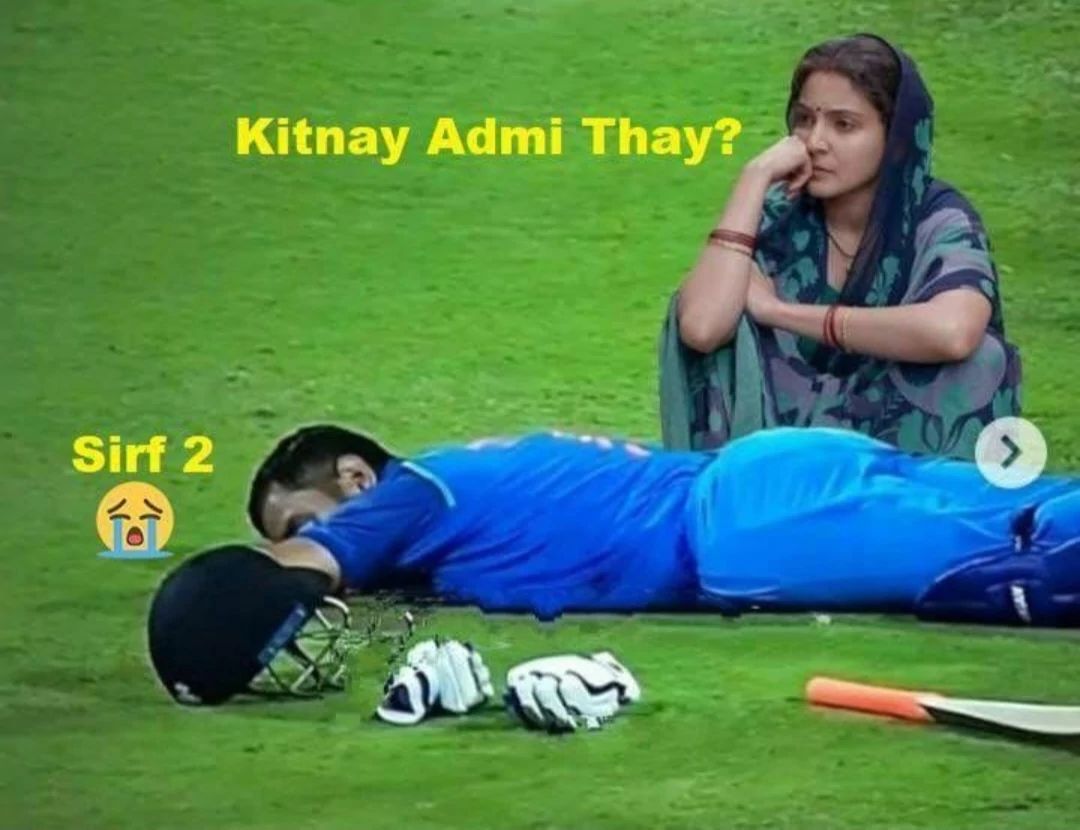](/images/16684416074338005.webp)
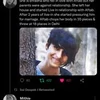

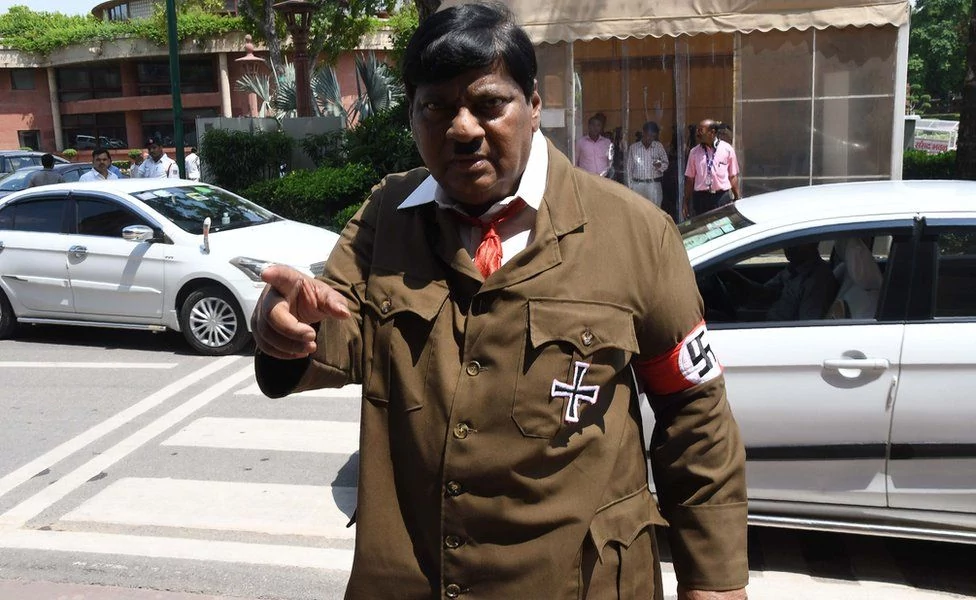](/images/16683474577665677.webp)





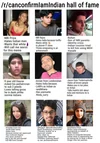









 touch foxglove NOW
touch foxglove NOW 


